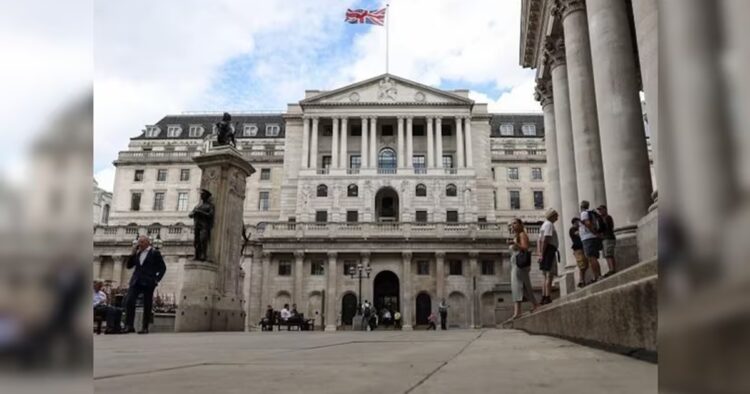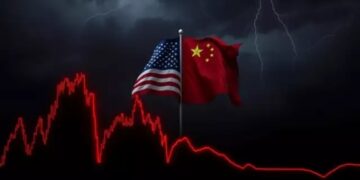In a surprising turn, British inflation has dropped to its lowest rate in over two years, hitting 3.9% in November, down from 4.6% in October. This unexpected decrease, attributed in part to cheaper petrol, marks the lowest reading since September 2021, according to the Office for National Statistics.
The Consumer Prices Index (CPI) inflation reading was below all forecasts, coming in at 3.9% instead of the expected 4.4%. Core and services measures of inflation, closely monitored by the Bank of England (BoE), also experienced a decline.
As a result, investors are now betting heavily on the possibility of a BoE interest rate cut in the first half of next year. Market expectations include a fully priced-in rate cut by May 2024, with nearly a 50% chance of a cut by March. The pound dipped against the U.S. dollar, and British government bond yields saw a notable decrease.
Despite the drop, the UK’s inflation rate still stands out among G7 advanced economies, with a nearly 21% increase in consumer prices since 2020—the highest in western Europe.
The recent inflation peak occurred in October 2022, reaching an alarming 11.1%. This surge was largely fueled by a spike in energy prices following Russia’s invasion of Ukraine, exacerbating existing supply chain issues heightened by the COVID-19 pandemic.
BoE officials, while cautious about interpreting the recent cooling of inflation as a long-term trend, may need to reconsider their stance in light of the latest figures. Economists argue that the data provides strong evidence of building disinflationary pressures in the UK.
Transport costs, especially motor fuels, played a significant role in driving down inflation in November, with fuel prices down by 10.6% compared to the previous year. Additionally, a smaller monthly increase in food and drink prices contributed to the decline, although they remain considerably higher than two years ago.
While Finance Minister Jeremy Hunt sees the data as a sign of easing inflation pressures, Labour Party spokeswoman Rachel Reeves argues that people are worse off after 13 years of Conservative government.
Prime Minister Rishi Sunak, on track to fulfill his promise of halving inflation this year, faces the prospect of a national election by January 2025. Core inflation, excluding energy and food prices, experienced an unexpected sharp drop to 5.1% from 5.7%.
The BoE’s attention to services inflation, a gauge of domestically-generated inflation, also witnessed a decline to 6.3% from 6.6%. Economists emphasize that the central bank cannot dismiss these drops as mere “noise.”
Concerns persist within the BoE regarding the slow decline of historically high rates of wage growth, making it challenging for CPI to reach the 2% target. Meanwhile, separate data reveals a 2.6% year-on-year decline in manufacturers’ raw materials costs, signaling potential relief in production expenses.

















Comments